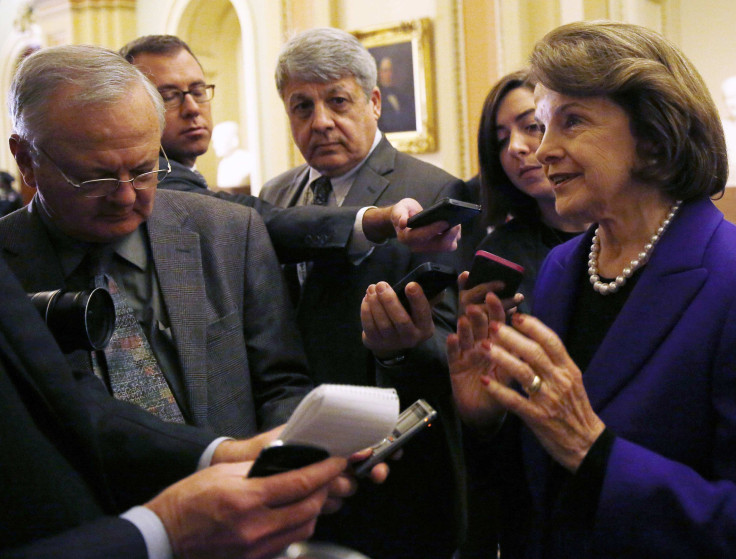CIA Torture Report: 2016 Presidential Candidates React To Terrorist Interrogation Techniques

Vice president Joe Biden called it a badge of honor, Sen. Marco Rubio (R-Fla.) said it was one-sided, and the others remained silent. While some politicians clamored to chime in Tuesday after the Senate Intelligence Committee released a report detailing torture techniques the CIA used on terrorists, most potential 2016 presidential candidates were quiet on the subject.
The 499-page summary of the committee's five-year investigation revealed harsh methods of interrogation after the Sept. 11, 2001 attacks. The committee concluded that the "enhanced interrogation techniques" tried on about 120 detainees weren't effective, and the CIA had misrepresented what they were doing. Waterboarding, rectal feeding and threats were among practices found to be employed by CIA officials.
After the report's release, President Barack Obama said in a statement he would keep using his authority to ban torture. But he's only commander-in-chief for two more years, so voters should pay attention to the responses of potential 2016 candidates.
Biden, who spoke at POLITICO's Women Rule Summit on Tuesday, said he thought the report's release was a "badge of honor." "Every country has engaged in activities somewhere along the line that it has not been proud of," he said. "But think about it, name me another country that’s prepared to stand and say, ‘This was a mistake, we should not have done what we done, and we will not do it again.'"
Rubio took a different approach. "Those who served us in aftermath of 9/11 deserve our thanks not one sided partisan Senate report that now places American lives in danger," Rubio tweeted Tuesday after the report's release. He later released a joint statement with Sen. Jim Risch (R-Idaho) saying the investigation was flawed, too costly and dangerous.
"We are concerned that this release could endanger the lives of Americans overseas, jeopardize U.S. relations with foreign partners, potentially incite violence, create political problems for our allies, and be used as a recruitment tool for our enemies," they said. "Simply put, this release is reckless and irresponsible."
Possible 2016 hopefuls who did not immediately issue statements included 2012 GOP nominee Mitt Romney, former Secretary of State Hillary Clinton, Texas Gov. Rick Perry, New Jersey Gov. Chris Christie, former Florida Gov. Jeb Bush, Sen. Elizabeth Warren (D-Mass.), Sen. Ted Cruz (R-Texas), Rep. Paul Ryan (R-Wis.) and Sen. Rand Paul (R-Ky.).
© Copyright IBTimes 2025. All rights reserved.






















